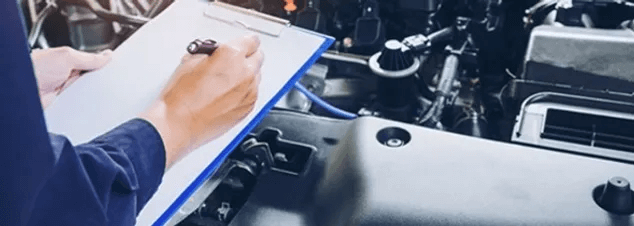Every year, thousands of used car buyers fall victim to scams or unknowingly purchase vehicles with hidden problems. For example, reports reveal that over 450,000 vehicles are sold annually with rolled-back odometers in the United States alone—a costly issue that could be avoided with a simple VIN check.
A Vehicle Identification Number (VIN) check is a critical tool for uncovering a vehicle’s history, safeguarding buyers from hidden dangers, and ensuring a wise investment. This article explores why VIN checks are essential for a secure and informed vehicle purchase.
What is a VIN and Why Does It Matter?
Definition of VIN
A VIN is a unique 17-character code assigned to every vehicle. This identifier acts as a vehicle’s fingerprint, holding details about its manufacturer, specifications, and history.
Purpose of the VIN
- Tracks a vehicle’s origin, ownership, and service records.
- Ensures accountability across the manufacturing, buying, and selling processes.
How VINs Are Used
- By Manufacturers: To log production data and specifications.
- By Law Enforcement: For stolen vehicle tracking and recovery.
- By Buyers and Sellers: For transparency in vehicle transactions.
Key Insights Gained from a VIN Check
- Accident History
- Discover if the vehicle has been in major accidents or sustained structural damage.
- This information is vital for assessing the car’s safety and reliability.
- Title Issues
- Understand if the vehicle has a clean title or issues like salvage or rebuilt titles.
- Identify risks such as flood damage or total loss claims.
- Odometer Fraud
- Detect odometer rollback schemes, ensuring the mileage reflects the vehicle’s true wear and tear.
- Recall Information
- Check for unresolved recalls that could compromise safety.
- Ownership and Usage History
- Determine if the car was a rental, fleet, or personal vehicle.
- Insight into maintenance practices and how the vehicle was used.
- Service and Maintenance Records
- Verify the consistency of service records to predict potential maintenance costs.
Explore the details your VIN can reveal using a free VIN decoder tool.
How VIN Checks Prevent Buyer Scams
- Avoiding Stolen Vehicles
VIN checks verify a vehicle’s authenticity, ensuring the seller has rightful ownership. - Spotting Flood-Damaged or Lemon Cars
Vehicles from disaster-prone regions or those classified as lemons can be identified with a comprehensive VIN check. - Detecting Cloned VINs
Fraudulent VIN duplication schemes are a growing concern, and a VIN check can expose these scams.
Check for stolen or cloned vehicles with a free vehicle history report.
Steps to Perform a VIN Check
- Locate the VIN
- Common locations: dashboard (driver’s side), door frame, or engine block.
- Choose a Reliable VIN Check Service
- Opt for trusted services like VinCheck.info’s free VIN check.
- Understand the Report
- Learn to interpret details such as title status, odometer readings, and recall history.
Benefits of Conducting a VIN Check
- Peace of Mind
- Gain confidence in your purchase with verified vehicle history.
- Financial Savings
- Avoid unexpected costs from undisclosed damages or repairs.
- Enhanced Negotiation Power
- Use verified data to negotiate a fair price based on the vehicle’s condition.
Conclusion
VIN checks are indispensable for any used car purchase, offering transparency and protection against scams. They help uncover hidden histories, ensuring a secure and informed decision.
Start your journey to a smarter purchase by using a free VIN decoder today. For further insights, explore VinCheck.info’s vehicle history resources.
